A field of cows set me off on a new career path
- Published
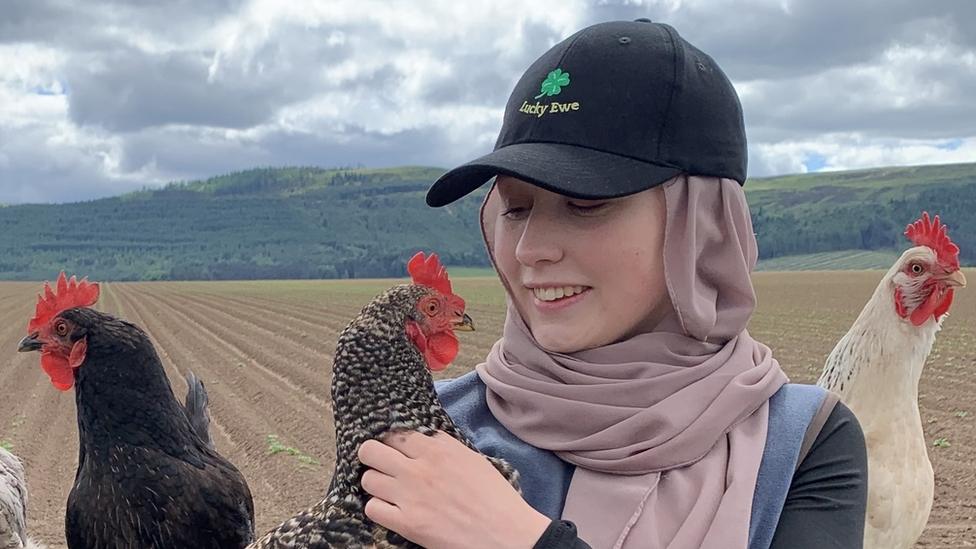
Abby posts about her farming experiences on TikTok
Abby-Leigh Doig had finished studying a course in forensic psychology when a field full of cows set her off on a different career path.
A group of heifers moved into the land behind her house in Fife, and before long she knew that she wanted to become a farmer.
As a young autistic Muslim woman, it was hard for Abby-Leigh to find role models in the industry.
But she eventually found some work experience, which led to an apprenticeship scheme - and now the 21-year-old hopes that one day she can run her own farm.
Abby-Leigh had not been sure what she wanted to do with her life when she and her family moved back to Scotland in 2018 after living in Saudi Arabia for three years.
During lockdown she binged on true crime documentaries, which inspired her to study forensic psychology.
She finished her level 3 forensic psychology course online and was set to continue down this career path until the cattle moved into the field behind her house.
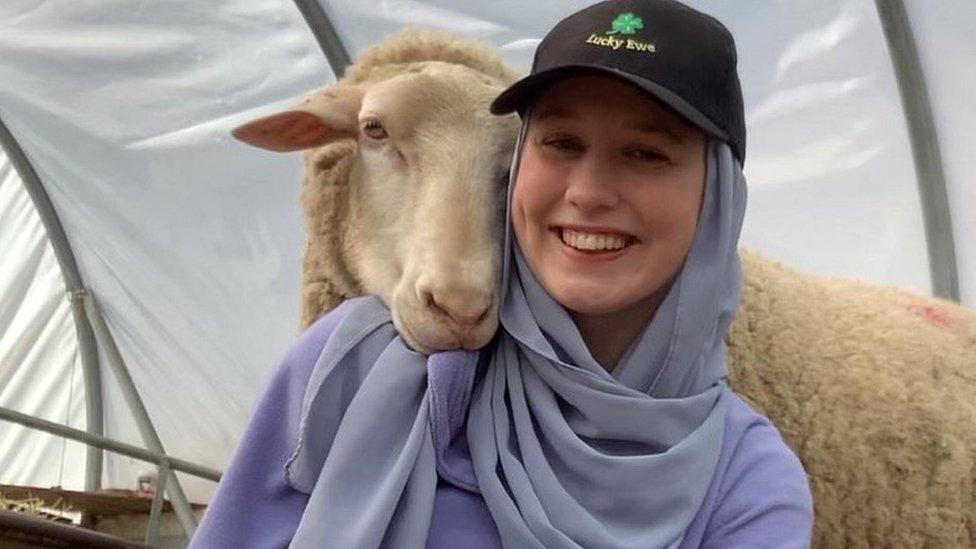
Abby thinks that people should spend more time with animals
"I've always been really interested in animals in general," says Abby-Leigh.
"I enjoy them being around me, so seeing the tractor pulling up with a trailer full of animals was really exciting."
When the farmer left, she went up to the gate and all the cattle ran to meet her. She continued to visit them at the gate every day.
"Because of my autism, as soon as I have a new interest then I try to find out absolutely everything about that topic," she says.
"I have a notebook filled with random cow facts and cow numbers that I've memorised."
However, she had absolutely no experience in farming and was not sure how to get involved in the industry.
"There's quite a severe lack of autistic hijabi farmers," she added.
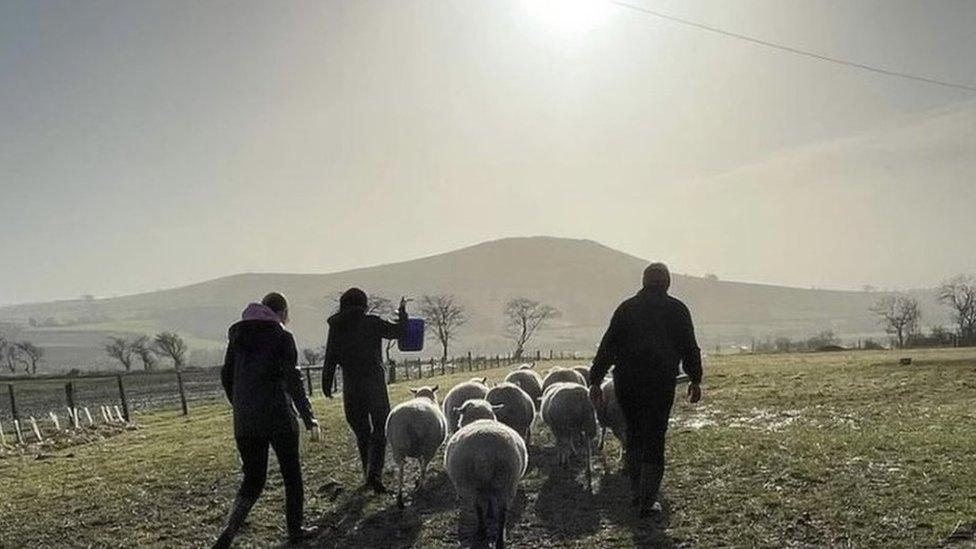
From the start the physical aspect of farming never bothered Abby-Leigh
Abby-Leigh contacted farmers' groups on Facebook to ask how she could get a job or any experience. Eventually, someone passed her details on to a beef farmer.
She was invited to his farm for a week, then sent a link to a pre-apprenticeship programme.
However, most of the others on the scheme came from farming backgrounds.
"I came into it knowing absolutely nothing about farming or anything," she recalls.
"I just liked cows, so I probably looked a little bit clueless in the beginning."
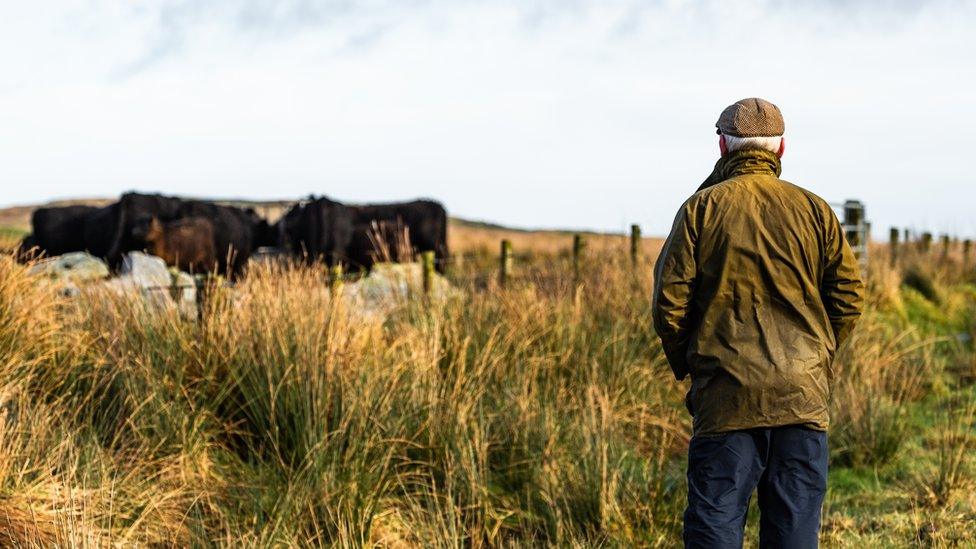
While the majority of farm owners are male, when it comes to farm employees the gender split is closer to 50/50
Agricultural sociologist Prof Lee-Ann Sutherland, from the James Hutton Institute, says apprenticeship schemes are "a fantastic first step" for getting a range of new people into farming.
While women have always been involved in farming, their lack of visibility could have helped create the stereotype of farmers being old white men, she says.
"This isn't a stereotype so much as it's a visual presence.
"Males tend to be the public face of the farm and we find that in research too.
"You want the farm's family name to carry on, so you want to pass it on to your son - and so the women are resigned to the role of helpers.
"While a farmer's wife might be a very competent, capable woman, driving tractors and feeding livestock, it is the male who is designated as 'the farmer'."
However, Prof Sutherland says that is changing - and that as attitudes shift, we are beginning to see more female successors and new entrants into farming.
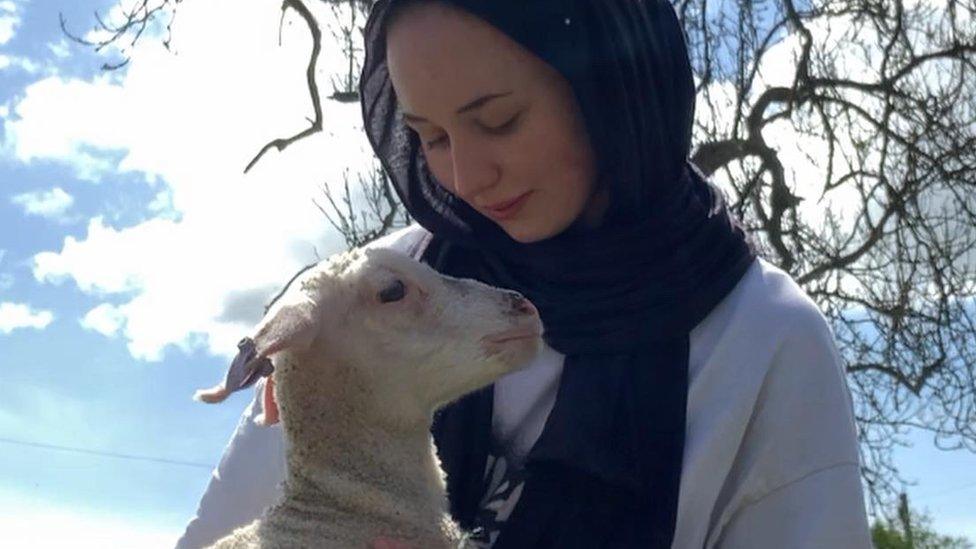
Abby-Leigh is a trustee for the Lucky Ewe farm which she volunteers at
Abby-Leigh is now doing her modern apprenticeship and spends her time between two dairy farms.
"I prefer dairy farming to beef farming because you get a lot more interaction with the cows," she says.
"I love working with cows, that's my favourite thing ever."
She also volunteers at The Lucky Ewe farm, a charity based in North East Fife which helps people with additional support needs experience farming, animal husbandry and food production.
Abby-Leigh says her autism means that structure is really important, which can be at odds with the nature of work on a farm.
"If I get to work and something's changed, like the cows are in a different field, and then I have no idea what to do, my brain will just malfunction, which is a little bit worrying," she says.
"The environment at Lucky Ewe and their ability to deal with people like me is amazing.
"They explain everything perfectly. There's never any kind of panic."
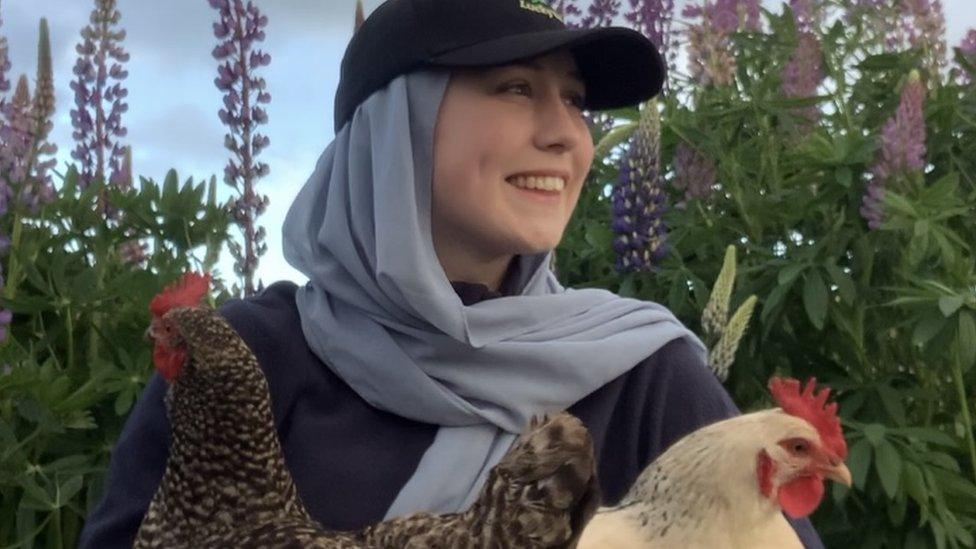
Abby-Leigh believes her chickens are especially friendly because she spends so much time with them
Abby-Leigh is in charge of the farm's TikTok account, and also posts about her farming journey - and her own five chickens - on her personal account.
"I'm a really big advocate for people spending more time with animals," she adds.
"I like to show people that farm animals are really comforting. When I'm with people I'm really anxious and I don't talk - I'm just a stuttering mess.
"But as soon as I'm with cows, chickens or sheep I'm instantly calm."
She has received comments on TikTok from other Muslims who would like to get into farming but do not know where to begin.
Prof Sutherland believes that people like Abby-Leigh could help inspire more people from diverse backgrounds to get into agriculture.
"It's always hard to be the first, but it's something I thoroughly support," she said.
"We need to make sure that it's a profession that anyone can get into, rather than just people who inherit the land from their parents."
When her apprenticeship ends, Abby-Leigh thinks she will continue working on dairy farms, although she hopes to run her own farm eventually.
"I want to have my own smallholding at some point, a couple of sheep, a few cows, things like that. That's my long-term goal."